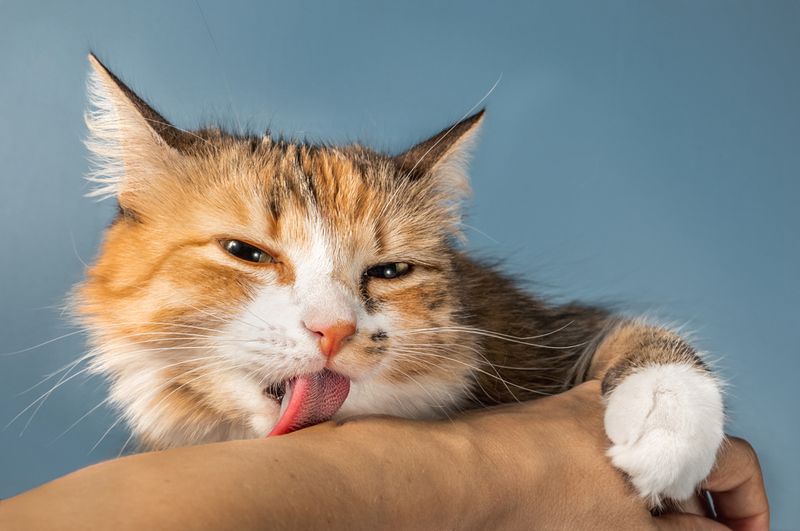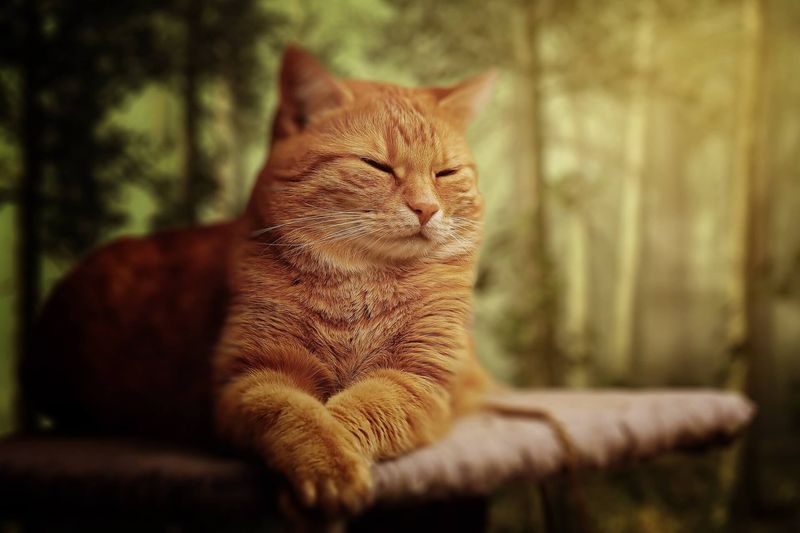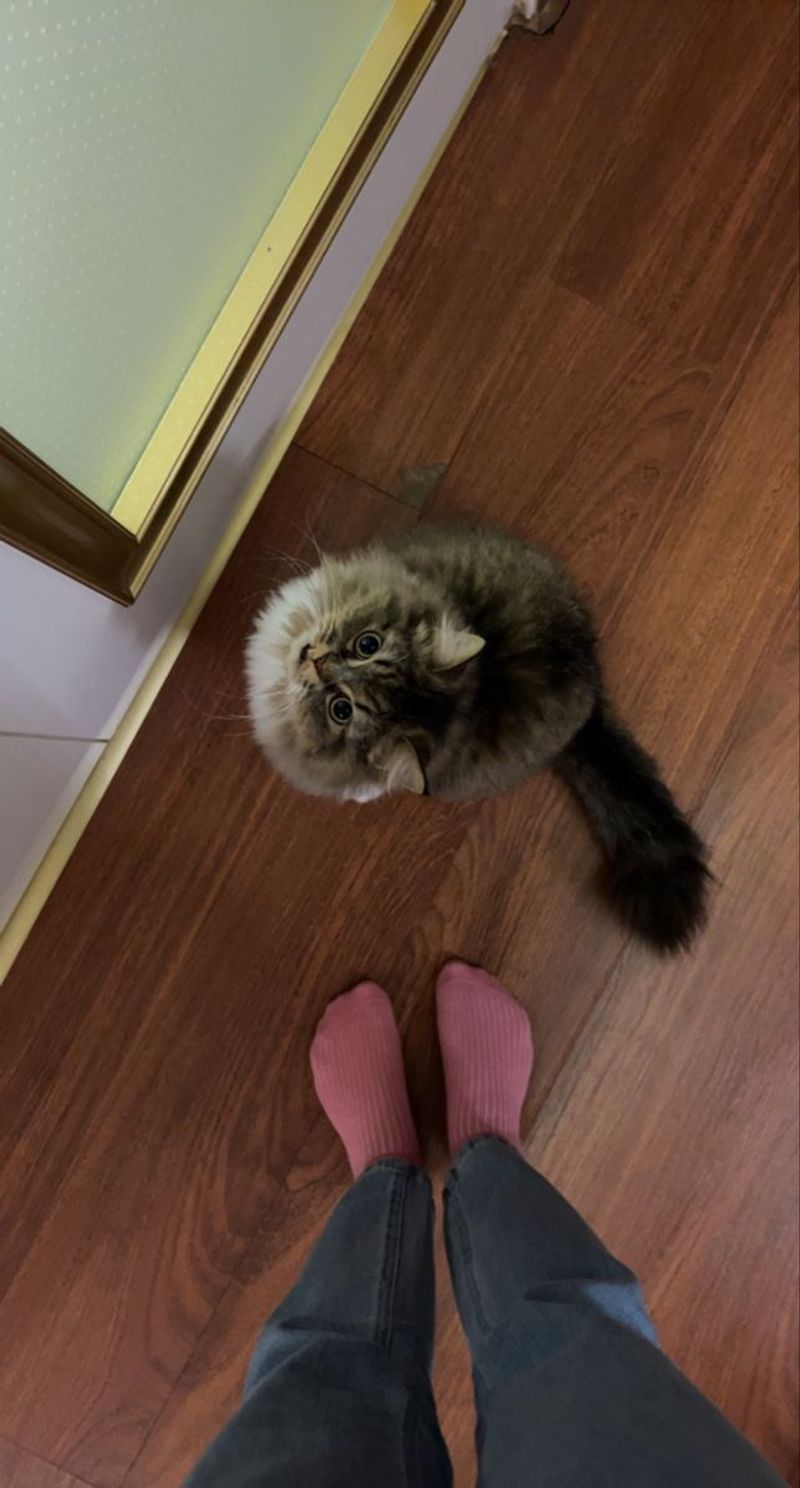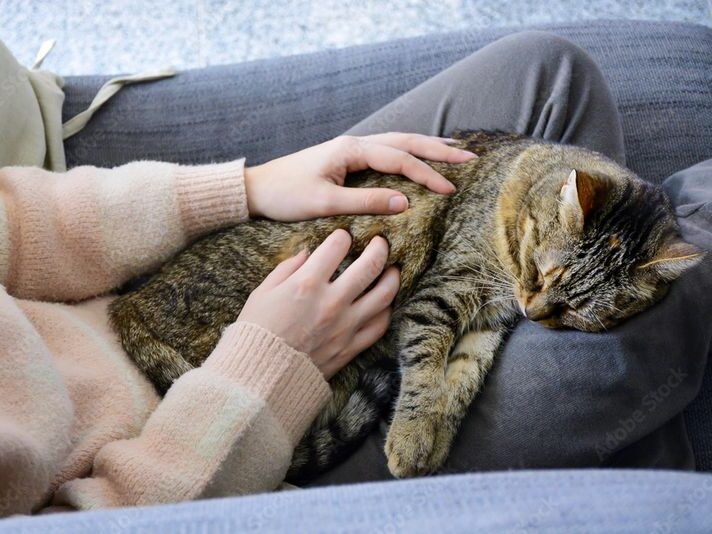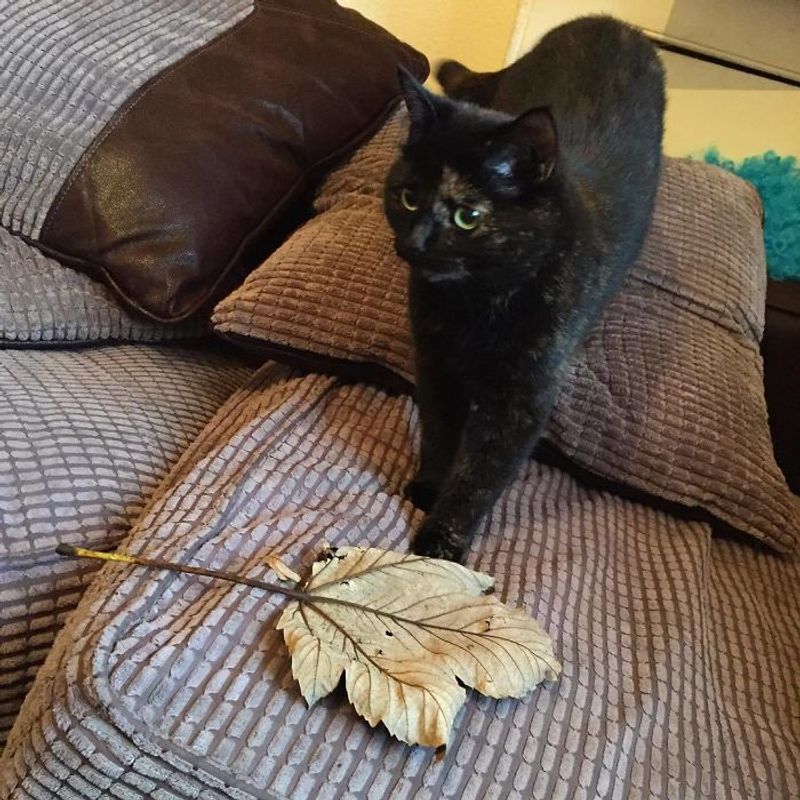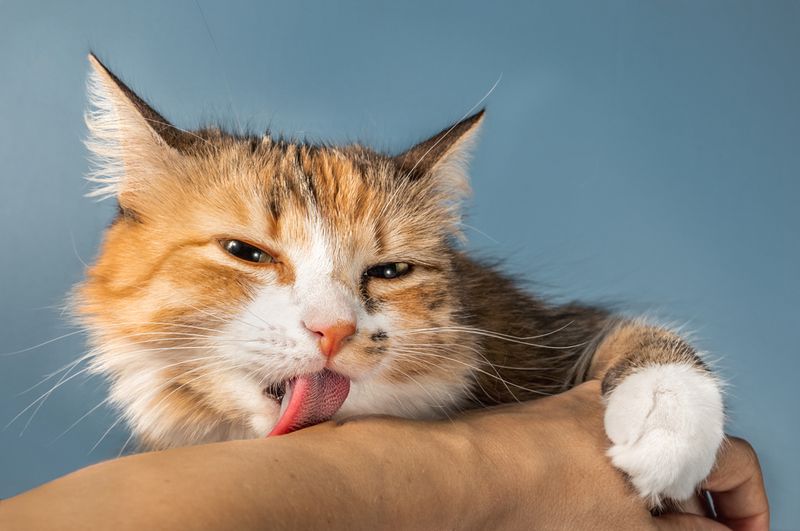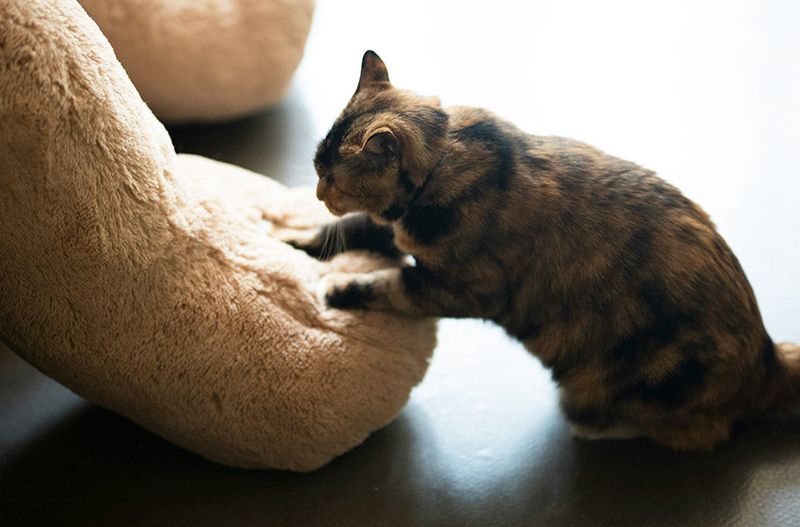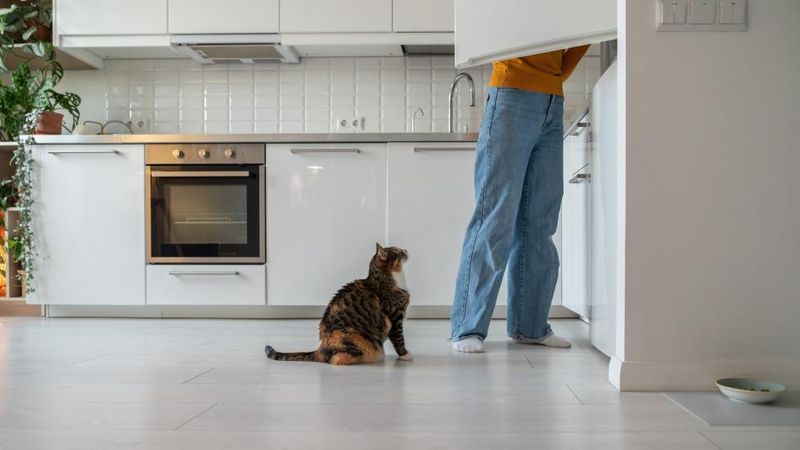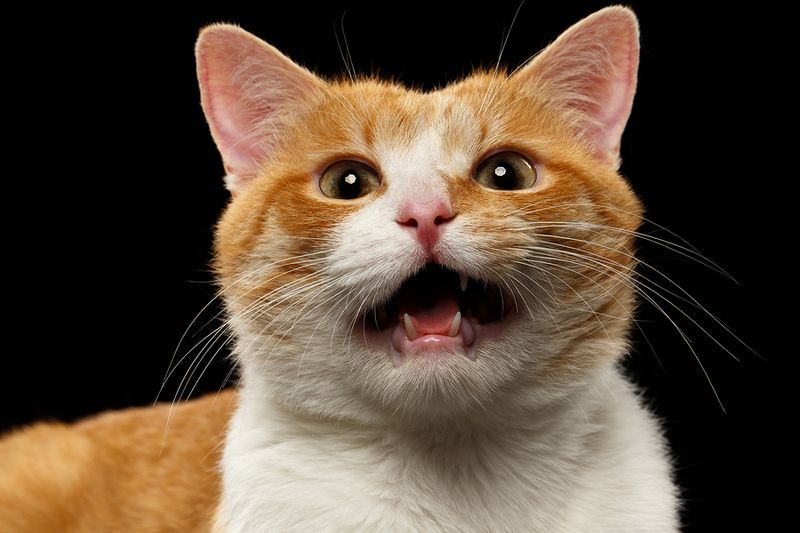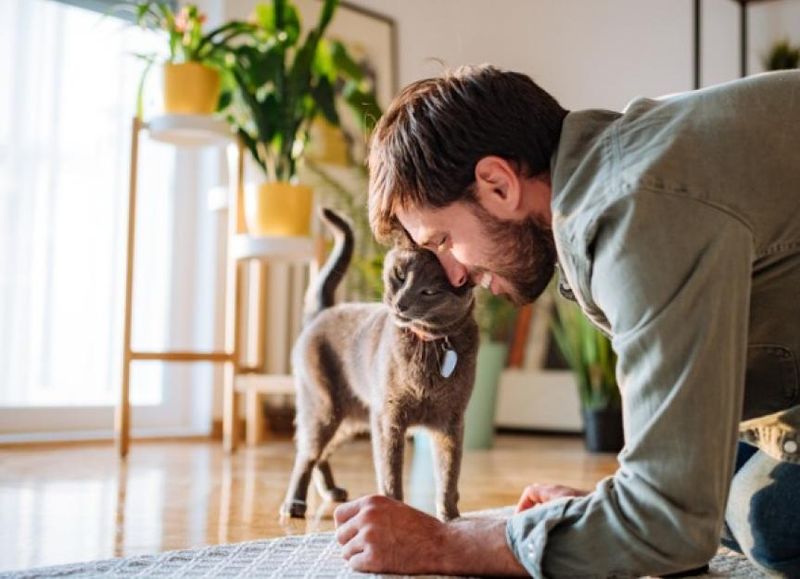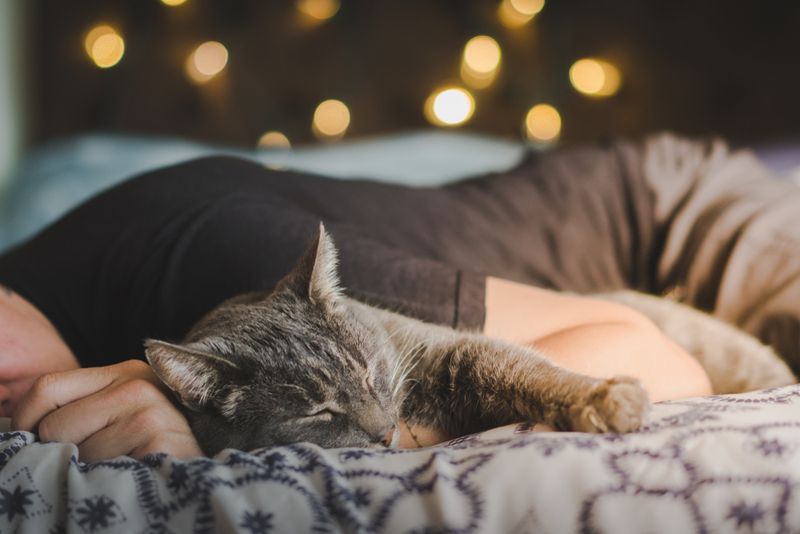📖 Table of Content:
Cats may be known for their aloof and independent nature, but anyone who shares their life with a feline friend knows they can be surprisingly intuitive when it comes to human emotions. While dogs might be more obvious with their affection, cats show their care in quieter, subtler ways—and often, just when you need it most. Whether you’re going through a rough patch or simply feeling off, your cat may be doing more than just hanging around. They could be actively trying to comfort you.
Felines have a unique way of sensing shifts in mood, tone, and energy. Though they don’t communicate in the same ways we do, their actions can speak volumes—if you know what to look for. From gentle purrs to a well-placed headbutt, your cat might be offering emotional support without you even realizing it. Understanding these signals can deepen the bond between you and your pet, making you more aware of just how emotionally intelligent and caring cats can be.
In this article, we’ll explore 10 signs that your cat may be trying to soothe you. Whether it’s a comforting presence, a soft gaze, or a little extra affection, these behaviors are worth paying attention to. So next time your kitty curls up beside you or stares into your eyes with a slow blink, you might just realize—it’s love, in the quietest form.
1. Slow Blinking at You
Sometimes, your cat will lock eyes with you and slowly close their eyelids, only to open them again with deliberate ease. This is not random—slow blinking is a recognized feline behavior meant to express trust and affection. Rather than stare you down, your cat chooses softness, a signal that they feel safe and want to make you feel safe too. In moments when you’re feeling low, you might notice this behavior more frequently. It’s their subtle way of saying, “I see you, and I’m here.” Try returning the blink—it’s one of the few ways you can “speak cat” with your eyes. Bonding through this simple gesture can build a sense of calm between you and your furry friend. Never underestimate the power of eye contact, especially when it’s filled with love.
2. Staying Close (But Not Overbearing)
Rather than jumping directly into your lap, your cat might choose to sit just within reach—close enough for comfort, far enough to give you space. It’s a balancing act they perform instinctively, especially when they sense your mood is fragile. Their presence alone can be soothing, like a quiet companion who doesn’t ask for anything in return. On tough days, you may look up and find them lying near your feet or tucked into a corner of the couch beside you. They’re not there by accident. In their own feline way, they’re offering quiet solidarity. Sometimes, emotional support isn’t loud or obvious—it’s just there. That’s the magic of a cat’s calm companionship.
3. Gentle Purring
Purring is one of the most comforting sounds a cat can make, and it’s not just for their own pleasure. Often, cats will begin to purr when they sense you’re anxious or upset, climbing onto your chest or curling in your lap like a little, furry weighted blanket. Their purring vibrates at a frequency that has been shown to promote healing and lower stress. This isn’t just adorable—it might actually be medicinal. When your cat starts to purr beside you, they’re creating a shared moment of calm. You may not realize how much it helps until you feel your shoulders relax and your breathing slow. Don’t brush it off as coincidence. That soft vibration is your cat’s way of saying, “Let’s feel better together.”
4. Bringing You a “Gift”
Unexpectedly, your cat may drop a toy mouse—or less delightfully, a real one—at your feet. While it might not seem like the most heartwarming gesture, it’s actually a feline act of love. In the wild, cats bring food to those they care for, and domestic cats maintain that instinct. When you’re feeling down, they might deliver a gift to “cheer you up” the best way they know how. It’s a little bizarre, sure—but deeply rooted in care. The gesture might be awkward, but the intention is genuine. You may not want what they’re offering, but the fact they chose to share it with you speaks volumes. In your cat’s eyes, this is comfort in the form of contribution.
5. Grooming You
Cats groom each other as a form of social bonding, and when they lick you, they’re extending that trust. That little sandpaper tongue brushing your hand or arm is more than just curiosity—it’s affection. In feline social groups, grooming helps maintain peace and reinforce relationships. So, if your cat starts licking you during stressful moments, take it as a sign of emotional support. It might feel strange at first, but it’s their way of showing love and concern. Grooming is also self-soothing for them, and by sharing it with you, they’re trying to bring you into that calm space. The action is instinctual but meaningful. To your cat, you’re part of the family—and families comfort each other.
6. Kneading on You
A cat pressing its paws rhythmically into your lap or belly might look odd, but it’s rooted in kittenhood. Kittens knead their mothers to stimulate milk flow, and the motion stays with them into adulthood as a comfort behavior. If your cat chooses you for kneading, it’s a clear sign they feel emotionally safe and content. And when they sense you need comfort, they might offer some of that soothing energy back. It’s not just a self-soothing act—they’re sharing that peaceful feeling with you. The repetitive motion can be relaxing to experience, even therapeutic. Take it as a compliment that they see you as a source of security. It’s their way of physically giving back some of the comfort you give them.
7. Following You from Room to Room
Everywhere you go, there they are—quietly tailing you like a fuzzy little shadow. This isn’t just curiosity or a demand for food. When you’re going through emotional distress, your cat might instinctively follow you more, making sure you’re never alone. Think of it as feline-style “checking in.” They don’t need to meow or climb into your arms; their presence is their message. Whether you’re in the kitchen, bathroom, or curled up in bed, they’re simply keeping watch. Some might call it clingy, but it’s really care disguised as curiosity. They know something’s different—and they want to stick close until you’re okay.
8. Vocalizing Differently Around You
Not all meows are created equal. Cats can change the tone, pitch, and pattern of their vocalizations depending on what they’re trying to say—and when you’re not feeling your best, they may get more talkative or soft-spoken. Some meows sound almost like questions, as if they’re asking, “Are you okay?” Others might be comforting chirps or murmurs, mimicking the soothing sounds between feline companions. Paying attention to these subtle shifts can clue you into their awareness of your emotions. Your cat might be trying to connect through sound, even if you don’t speak the same language. It’s empathy through meows. The right tone at the right time can be incredibly comforting.
9. Head Butting or Nuzzling
That gentle bump of their forehead against yours? It’s called “bunting,” and it’s one of the highest forms of affection a cat can offer. By rubbing their scent glands on you, they’re claiming you as part of their safe zone. During emotional lows, this gesture can feel especially meaningful. It’s like a cat’s version of a reassuring hug. Not only are they comforting you, but they’re also grounding themselves by being close to you. Physical touch can be deeply healing—even if it’s just a soft nuzzle from your cat. When they lean in like that, lean back. You both benefit from the exchange.
10. Sleeping Beside You
Of all the places your cat could nap, they choose you—or at least right next to you. That’s not a random choice. Cats only sleep near those they trust deeply, and if you’re upset or under the weather, they might intentionally stay close. Sleeping beside you is their way of offering stillness and warmth. It’s also their method of keeping watch while you rest. Even if they’re snoozing, their proximity is a sign of protective companionship. That quiet, shared space becomes a little emotional sanctuary. Their body heat, rhythmic breathing, and presence can be a quiet form of healing.
